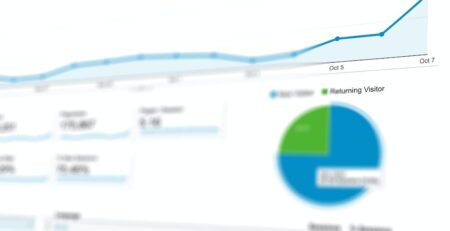When it comes to improving your website’s search engine rankings, many people focus solely on on-page SEO tactics such as optimizing meta tags, using keywords, and creating high-quality content. While these are important factors, off-page SEO, particularly backlinks, play a crucial role in determining your website’s authority and influence in the online world. In this article, we will explore the secret to boosting your website’s rankings with off-page backlinks, and you won’t believe the results!
What are Off-Page backlinks?
Off-page backlinks, also known as inbound links or external links, are links that point from other websites to your own website. These links are one of the most influential factors in determining a website’s authority and credibility in the eyes of search engines. When a website links to your site, it’s like casting a vote of confidence and trust, telling search engines that your content is valuable and relevant.
backlinks are essentially like online referrals. The more high-quality backlinks you have from reputable websites, the more authority and credibility your website will gain in the eyes of search engines. This, in turn, can lead to higher rankings in search engine results pages (SERPs), which can ultimately lead to increased organic traffic and visibility for your website.
The Secret to Boosting Your Website’s Rankings With Off-Page backlinks
Now that we understand the importance of off-page backlinks, let’s dive into the secret to boosting your website’s rankings with these powerful links. The key lies in the quality, relevance, and diversity of your backlink profile. Here are some strategies to consider:
1. Quality Over Quantity
When it comes to backlinks, quality trumps quantity. One high-quality backlink from a reputable and authoritative website can be more valuable than dozens of low-quality backlinks. Focus on earning backlinks from websites that are relevant to your industry and have a strong domain authority.
2. Natural Link Building
While it may be tempting to engage in tactics such as buying backlinks or participating in link schemes, these practices can do more harm than good in the long run. Instead, focus on natural link building by creating high-quality, shareable content that naturally attracts backlinks from other websites. This could include guest blogging, creating infographics, conducting original research, or producing engaging videos.
3. Diverse Anchor Text
Anchor text is the clickable text in a hyperlink, and it plays a role in signaling to search engines what the linked page is about. Diversifying your anchor text by using a mix of branded, exact match, and partial match anchor text can help create a natural and balanced backlink profile. Avoid over-optimizing your anchor text, as this can trigger search engine penalties.
4. Social Signals
While social signals such as likes, shares, and comments may not have a direct impact on your website’s rankings, they can indirectly influence your backlink profile. When your content is shared on social media, it can attract more visibility and potential backlinks from other websites. Therefore, it’s essential to have a strong social media presence and to create share-worthy content that resonates with your audience.
5. Monitor and Disavow Toxic Links
Not all backlinks are beneficial to your website. In fact, low-quality and spammy backlinks can harm your website’s rankings. Regularly monitor your backlink profile using tools such as Google Search Console or SEMrush, and disavow toxic links that could be dragging down your website’s authority. This will help to ensure that your backlink profile remains healthy and free from harmful links.
Conclusion
Off-page backlinks are a powerful and influential factor in determining your website’s authority, credibility, and rankings in search engine results pages. The secret to boosting your website’s rankings with off-page backlinks lies in the quality, relevance, and diversity of your backlink profile. Focus on earning high-quality, natural backlinks from reputable websites, diversify your anchor text, leverage social signals, and monitor and disavow toxic links to ensure a healthy backlink profile. By following these strategies, you can unlock the full potential of off-page backlinks and experience incredible results for your website’s rankings.
FAQs
Q: How many backlinks do I need to boost my website’s rankings?
A: There is no specific number of backlinks that guarantees improved rankings. Focus on earning high-quality, relevant backlinks rather than quantity.
Q: Can I buy backlinks to improve my website’s rankings?
A: Buying backlinks and participating in link schemes can result in penalties from search engines. It’s best to focus on natural link building strategies.
Q: What is anchor text and how should I use it in my backlink strategy?
A: Anchor text is the clickable text in a hyperlink. Diversify your anchor text by using a mix of branded, exact match, and partial match anchor text to create a natural and balanced backlink profile.
Q: How can social signals influence my backlink profile?
A: While social signals may not directly impact your website’s rankings, they can indirectly influence your backlink profile by attracting more visibility and potential backlinks from other websites.
Q: What should I do if I discover toxic links in my backlink profile?
A: Regularly monitor your backlink profile and disavow toxic links using tools such as Google Search Console or SEMrush to ensure that your backlink profile remains healthy and free from harmful links.











Leave a Reply